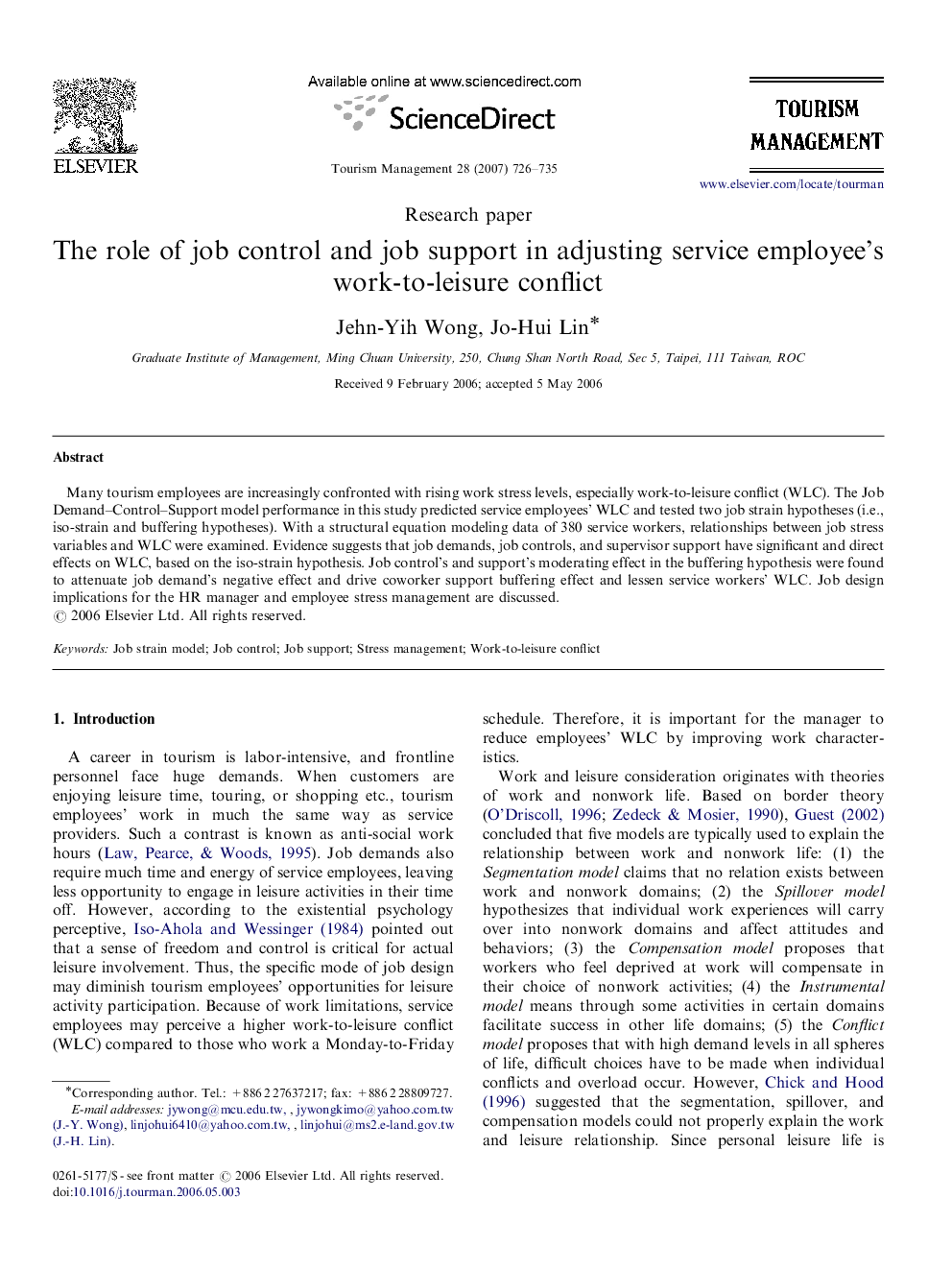| Article ID | Journal | Published Year | Pages | File Type |
|---|---|---|---|---|
| 1013332 | Tourism Management | 2007 | 10 Pages |
Many tourism employees are increasingly confronted with rising work stress levels, especially work-to-leisure conflict (WLC). The Job Demand–Control–Support model performance in this study predicted service employees’ WLC and tested two job strain hypotheses (i.e., iso-strain and buffering hypotheses). With a structural equation modeling data of 380 service workers, relationships between job stress variables and WLC were examined. Evidence suggests that job demands, job controls, and supervisor support have significant and direct effects on WLC, based on the iso-strain hypothesis. Job control's and support's moderating effect in the buffering hypothesis were found to attenuate job demand's negative effect and drive coworker support buffering effect and lessen service workers’ WLC. Job design implications for the HR manager and employee stress management are discussed.
